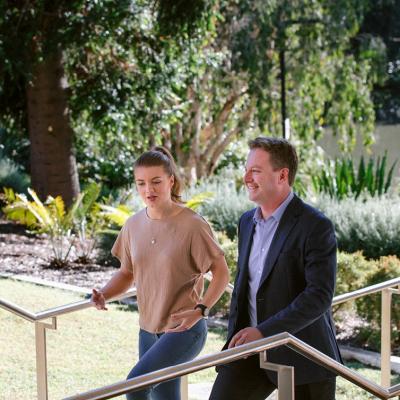What motivates us to achieve better health? Is it the same for everyone? Can our motivations for achieving better health impact the outcomes?
Exploring intrinsic motivation and exercise adherence
It’s likely you know someone who has embarked on a new nutrition or fitness regime. How successful they are at maintaining that behaviour may be linked to their underlying motivations. Could achieving positive, long-lasting change in exercise, sport and nutrition come down to what motivates us?
“Motivations can influence how sustainable and fulfilling behaviours around health are,” says Paul Treschman, Associate Lecturer at UQ’s School of Human Movement and Nutrition Sciences.
“A person who is only doing it for social validation and to live up to the expectation of others is more likely to experience a decline in motivation and feelings of disappointment if they don’t see the results or outcomes they were expecting.”
Understanding the connections between motivation in sports and exercise, feedback and interpersonal skills, specifically in the field of physical education, is Paul’s area of interest.
It’s a captivating field to work in, because most of us will search for the source of our motivations at some point in life, and physical activity is unquestionably central to the quality of life we all enjoy.
“When people’s goals are mainly influenced by extrinsic factors, such as the latest diet trend or what they see on their friends’ newsfeeds, they’ll find it really hard to live up to and it can lead to disappointment,” says Paul.

“If people are realistic about their health goals and focus on intrinsic, internal factors, the motivation tends to be more meaningful and enduring."
Motivation to be healthy varies from person to person
“The goal is to give young people the tools to be able to distinguish between unhealthy fads and truly healthy behaviours, and use these tools to enhance the lives of others, and create environments that will lead to genuine engagement in healthy, supportive and sustainable behaviours," he says.
“It’s about helping others. Exercise and diet look different for different people, and health needs to be about what’s best for the individual, rather than a one-size-fits-all approach.”
Essentially, what motivates one person to exercise and eat right may not work for another person. This idea is linked to Paul’s passion – learning how different people respond in different environments.
“I’ve seen how some people can flourish in certain environments, yet those same people may struggle to perform,” he says.
Paul is passionate about understanding and creating environments where people thrive, and he enjoys teaching students how to build their own healthy behaviours.
“The ultimate reward is seeing them pass this on to future generations, helping to promote a lifelong love of being healthy and active.”
Own the unknown in exercise, sport and nutrition at UQ.






